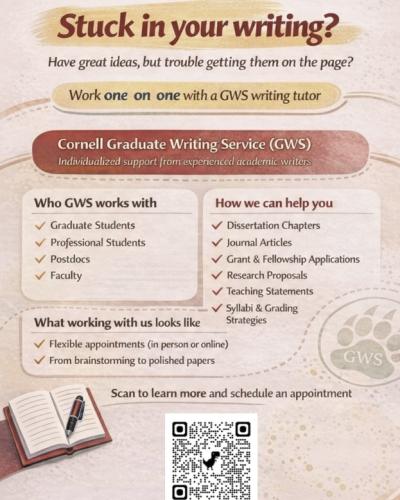No single description can capture diverse experiences of our first-year international students, particularly those who are currently residing outside of the US. Many have shared their difficulty across the board (not only in First-Year Writing Seminars) with attending online class sessions that, for them, meet in the middle of the night. We know that at least some FWS instructors have received requests from such students to stop attending class meetings and participate in an exclusively asynchronous mode. We offer here some guidance on how you might respond.
According to a recently-reiterated university policy, students cannot be required to attend synchronous class meetings between 10:30 pm and 8:00 am, their time. The remedy, however, cannot be merely to ask more of instructors, by making up the deficit with individual tutorial meetings or with additional asynchronous lesson-planning that might only deepen rather than diminish these students’ sense of isolation and disadvantage.
The Knight Institute strongly advocates a programmatic rather than an individualized approach to this challenge, even though individual efforts, cooperation and creativity will be required. We offer here some ways to begin thinking creatively about how to strike an imperfect balance between student equity and instructor workload, and to transcend the unproductive binaries of “synchronous” versus “asynchronous” participation, “video on” or “video off,” either working with other students during class or interacting solely with an overtaxed instructor outside of it. With smart, relatively low-impact pedagogical interventions, we can shift the emphasis away from mere “attendance”—a video tile in Gallery View—toward the much more meaningful concept of engagement.
There are no ready-made solutions, depending on the number and circumstances of international students in any given seminar. The Knight Institute can provide advice, resources, and backup for both you and your students. If you have not already done so, please complete this Qualtrics survey to help us gather information about your students and direct them to appropriate Knight resources.
Some concrete pedagogical suggestions follow. Just a few examples must suffice, none of which are meant to imply that instructors are not already making heroic and compassionate efforts:
- We encourage instructors to have frank, empathetic conversations with their international students, who may be reluctant to raise their concerns or ask for help. These discussions might include not only guiding students toward untapped resources that will be detailed below, but also agreeing to hold occasional or periodic office hours at unusual times, such as the early morning or late evening EST, to accommodate time-zone differences. Small gestures can go a long way to making students abroad feel recognized, supported, and rewarded for their efforts.
- Instructors might reinvent and emphasize pedagogical strategies that foster text-based interactions among students. For instance, a series of Canvas Discussion posts and replies could allow dialogue among far-flung students beyond the synchronous Zoom meeting, and still engage the crucial language practice that multilingual learners need.
- Such exchanges could include audio and video postings, to add face-time and an oral dimension.
- Simply watching a recording of other students sharing their ideas in discussion cannot substitute for the opportunity to share one’s own, but perhaps an international student could post a brief audio/video commentary on a recorded class discussion (or portion of one), responding directly within a short time-frame to some minimum number of their classmates’ contributions. Alternatively, a student abroad might offer a written comment or series of questions ahead of a class discussion, which the instructor could represent and integrate into the recorded meeting.
- If two or more international students are enrolled in one seminar, these individuals might be tasked with joining one another on Zoom at specified intervals to discuss or collaborate and then report to the instructor, perhaps even recording and posting their session.
- Some of your Ithaca-based students might be incentivized—they might even volunteer, if given the opportunity—to meet with their international classmates in the late evening on the East Coast for short, focused discussions on assigned material or a prepared itinerary of questions, again having the international students record and post their session or report on it in writing. Both sets of students could benefit thereby.
The Knight Institute faculty welcomes you to consult with us; if you are a graduate student instructor, we urge you also to consult with your course leader and departmental advisors, to brainstorm innovative approaches to further engaging international students beyond the limits of Zoom meetings. Happily, these efforts—which need neither inflate your workload nor undermine your autonomy—can result in increased engagement for every student, whatever their status.
Below is a list of resources that the Knight Institute can offer to you and to your students:
- If students would benefit from individual attention, direct them to the Cornell Writing Centers. You might even consider requiring them to attend a certain number of tutoring sessions, and to write a 1- to 2-page reflection after each tutorial in which they describe both what they did during the tutoring session (paragraph 1) and the work that they completed after the session (paragraph 2), and then reflect on how their work with the tutor has helped them to refine their drafting process more generally (paragraph 3).
For more information and to schedule appointments: Cornell Writing Centers.
- As another option, you might encourage students to seek out a steadier system of support with the KNIGHT WRITERS Mentor Program. Students meet with dedicated writing tutors for up to two hours per week on their FWS reading and writing assignments. After assessing each students’ needs and circumstances, we will place them with undergraduate or graduate writing mentors, multilingual writing specialists, or Knight faculty writing consultants.
For more information and to apply: KNIGHT WRITERS Mentor Program.
- International students might also benefit from working with peers in other First-Year Writing Seminars in small, weekly writing groups facilitated by Knight’s multilingual writing tutors.
For more information and to sign up: Mutlilingual Writing Groups.
No one could have fully anticipated the dilemmas our international students face; planning and teaching a writing seminar is hard enough without the obstacles of a global health, humanitarian, and human-rights crisis. In these times, the solidarity of colleagues and a sense of shared purpose can offer a respite.




